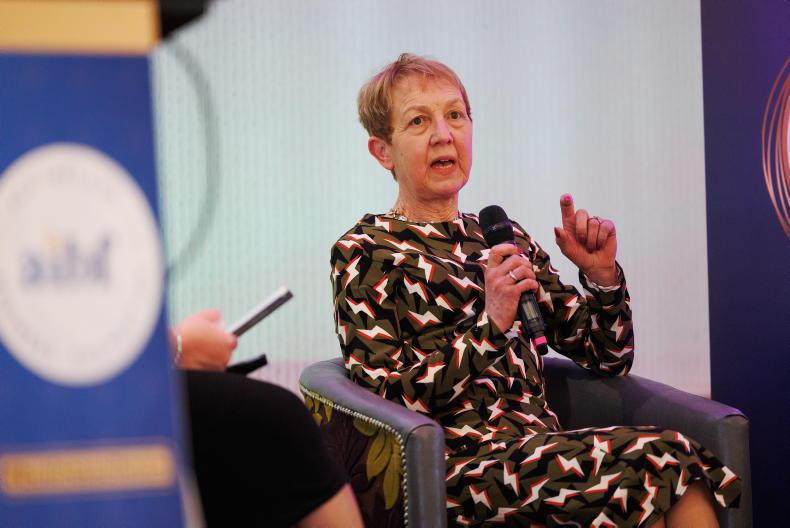Agribusinesses and rural small to medium enterprises (SMEs) face additional challenges selling their products abroad due to a gap in knowledge and supports, according to the All-Ireland Business Foundation (AIBK).
This comes a from the Navigating Global Markets report published in partnership with the University of Limerick (UL) and sponsored by Mauve Group, which found that Irish SMEs accounted for just 19% of national export value, well below the European average of over 30%.
It was also found that 67% of SMEs plan to expand internationally in the next three years but just 34% have a clear export plan, with non-exporters, including agri-enterprises, citing a lack of time, market knowledge and access to networks as major barriers.
Dr Briga Hynes, from UL Kemmy Business School, called for greater export support for these underrepresented businesses.
“In today’s fast-changing world, SME internationalisation must be reimagined with a focus on building internationalisation agility,” she said.
“Achieving lasting global success requires agile and resilient leadership, supported by strong capabilities in collaboration, risk management, integration, innovation and continuous adaptation.”
Agri-business
The report found there was a persistent support gap in rural Ireland and highlighted that SMEs located in non-urban areas often face practical barriers to accessing export supports due to geographic distance and a lack of local resources.
This challenge is particularly relevant for agri-businesses, such as machinery manufacturers and food SMEs, which typically operate far from centralised agency hubs.
In addition, Irish agri-businesses face new pressures from EU sustainability targets and shifting trade policies.
According to AIBF, these findings reinforce long-standing concerns that agriculture-linked and rural service firms are frequently overlooked in current support frameworks.
Report
Based on more than 100 interviews with SME owners across Ireland, including in agriculture, agri-tech and food production, the report looks at actionable insights for businesses around internationalisation and export readiness.
The report also explores how technologies like AI and digitalisation are opening new routes to global growth.
AIBF CEO Elaine Carroll said: “This report is a rallying call for Irish businesses with global ambition. It shows that the barriers are real, but so are the opportunities.”
Read more
Ifac acquires Kilkenny accounting firm
How to manage finances early in your career
Will exporting help us to grow our farm equipment business?
Connecting students with industry members opens minds and doors
Agribusinesses and rural small to medium enterprises (SMEs) face additional challenges selling their products abroad due to a gap in knowledge and supports, according to the All-Ireland Business Foundation (AIBK).
This comes a from the Navigating Global Markets report published in partnership with the University of Limerick (UL) and sponsored by Mauve Group, which found that Irish SMEs accounted for just 19% of national export value, well below the European average of over 30%.
It was also found that 67% of SMEs plan to expand internationally in the next three years but just 34% have a clear export plan, with non-exporters, including agri-enterprises, citing a lack of time, market knowledge and access to networks as major barriers.
Dr Briga Hynes, from UL Kemmy Business School, called for greater export support for these underrepresented businesses.
“In today’s fast-changing world, SME internationalisation must be reimagined with a focus on building internationalisation agility,” she said.
“Achieving lasting global success requires agile and resilient leadership, supported by strong capabilities in collaboration, risk management, integration, innovation and continuous adaptation.”
Agri-business
The report found there was a persistent support gap in rural Ireland and highlighted that SMEs located in non-urban areas often face practical barriers to accessing export supports due to geographic distance and a lack of local resources.
This challenge is particularly relevant for agri-businesses, such as machinery manufacturers and food SMEs, which typically operate far from centralised agency hubs.
In addition, Irish agri-businesses face new pressures from EU sustainability targets and shifting trade policies.
According to AIBF, these findings reinforce long-standing concerns that agriculture-linked and rural service firms are frequently overlooked in current support frameworks.
Report
Based on more than 100 interviews with SME owners across Ireland, including in agriculture, agri-tech and food production, the report looks at actionable insights for businesses around internationalisation and export readiness.
The report also explores how technologies like AI and digitalisation are opening new routes to global growth.
AIBF CEO Elaine Carroll said: “This report is a rallying call for Irish businesses with global ambition. It shows that the barriers are real, but so are the opportunities.”
Read more
Ifac acquires Kilkenny accounting firm
How to manage finances early in your career
Will exporting help us to grow our farm equipment business?
Connecting students with industry members opens minds and doors






 This is a subscriber-only article
This is a subscriber-only article










SHARING OPTIONS: